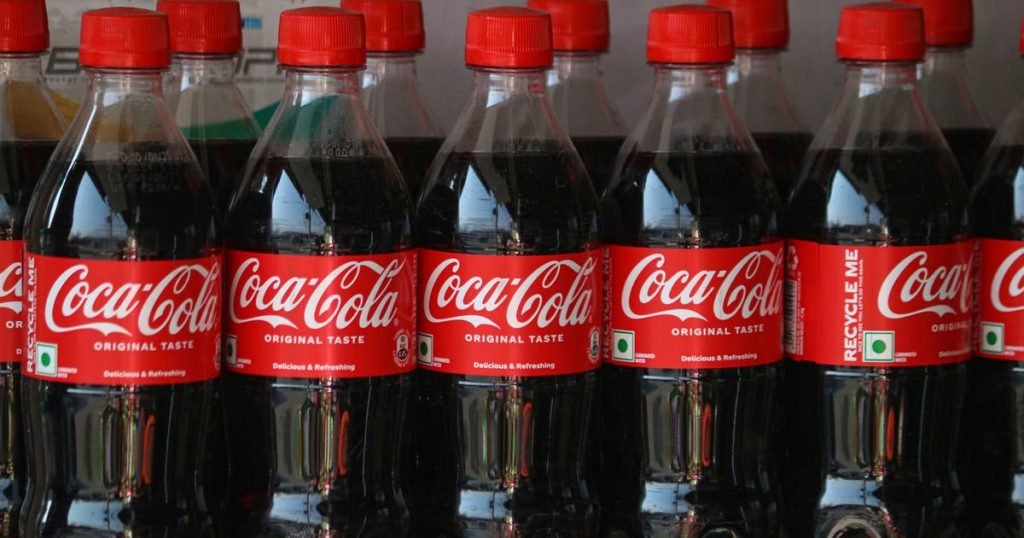The Impact of Trump’s Aluminum Tariffs on Coca-Cola: A Comprehensive Overview
Introduction: Understanding the Ripple Effect of Trade Policies
In an increasingly interconnected global economy, trade policies can have far-reaching consequences that resonate across industries. The announcement of President Donald Trump’s tariffs on aluminum and steel in early 2018 serves as a prime example of how such measures can impact even the most iconic brands. Coca-Cola, a global beverage giant, found itself grappling with the potential repercussions of these tariffs, particularly as they relate to the cost of aluminum used in its canned beverages. CEO James Quincey addressed these concerns during an earnings call, outlining the company’s strategies to mitigate any adverse effects. This summary delves into the implications of these tariffs, Coca-Cola’s response, and the broader economic and environmental considerations at play.
The Potential Impact of Aluminum Tariffs on Coca-Cola
The imposition of a 25% tariff on imported steel and aluminum posed a significant challenge for Coca-Cola, which relies heavily on aluminum for its beverage cans. The company imports a substantial portion of its aluminum from Canada, and the new tariffs threatened to increase production costs. In response, Quincey highlighted the company’s contingency plans, which included shifting focus to other packaging options such as PET (polyethylene terephthalate) plastic bottles. This strategy aimed to maintain affordability and competitiveness in the market. Quincey emphasized that while the tariffs could lead to higher costs, their overall impact on Coca-Cola’s vast and diversified operations would likely be minimal. He noted that packaging costs constitute only a small fraction of the company’s total expense structure, suggesting that the tariffs would not drastically alter the company’s financial trajectory.
The Broader Implications of Trump’s Tariff Policy
President Trump’s decision to impose tariffs on aluminum and steel was framed as a measure to bolster U.S. manufacturing and protect domestic industries. The administration argued that these tariffs would incentivize companies to source materials domestically, thereby creating jobs and strengthening the U.S. economy. However, critics warned that such measures could lead to higher costs for consumers and potential trade wars with other nations. In the context of Coca-Cola, the tariffs presented both a challenge and an opportunity. While the company explored ways to absorb or mitigate the increased costs, it also considered alternative sourcing strategies, including the possibility of procuring aluminum from domestic suppliers. This approach aligns with the administration’s goals of promoting U.S. manufacturing while ensuring that the company can maintain its competitive edge.
Coca-Cola’s Strategic Response to the Tariffs
Coca-Cola’s leadership demonstrated a proactive approach in addressing the potential fallout from the tariffs. Quincey underscored the company’s commitment to maintaining affordability and consumer demand, even in the face of rising input costs. By diversifying its packaging options, Coca-Cola aimed to offset any price increases associated with aluminum cans. For instance, the company could shift production to plastic bottles, which are generally less expensive to produce. This strategy not only helps mitigate the financial impact of the tariffs but also ensures that consumers continue to have access to affordable beverage options. Additionally, Coca-Cola leveraged its existing "hedging programs" to manage price volatility and explored opportunities to optimize its supply chain. These measures reflect the company’s resilience and adaptability in navigating an uncertain trade environment.
Environmental Considerations: The Plastic vs. Aluminum Debate
The shift toward plastic bottles as a response to the tariffs raises important environmental questions. Aluminum is widely regarded as more recyclable and less resource-intensive than plastic, making it a more sustainable option in the long run. Coca-Cola has faced criticism for its role in contributing to the global plastic pollution crisis, particularly through its production of single-use plastic bottles. In recent years, the company has made efforts to address these concerns by setting sustainability goals, such as increasing the use of recycled materials in its packaging. However, the revised target of using 35% to 40% recycled material by 2035, down from an earlier goal of 50%, has drawn scrutiny from environmental advocates. The potential increase in plastic bottle production, driven by the tariffs, could undermine these sustainability efforts and intensify public scrutiny of the company’s environmental practices.
Conclusion: Balancing Economic and Environmental Priorities
The situation surrounding Trump’s aluminum tariffs and Coca-Cola’s response underscores the complex interplay between economic, environmental, and political factors in global trade. While the tariffs aimed to protect U.S. manufacturing and jobs, they also posed challenges for companies like Coca-Cola, which must navigate rising costs while maintaining affordability and competitiveness. The company’s strategic response, including a potential shift to plastic bottles, highlights the difficult balance between economic viability and environmental responsibility. As the global economy continues to evolve, companies and policymakers must work together to find solutions that promote sustainable growth without exacerbating environmental challenges. The case of Coca-Cola serves as a reminder that trade policies have far-reaching consequences and that navigating these complexities requires both foresight and resilience.












